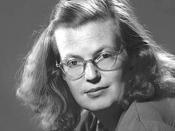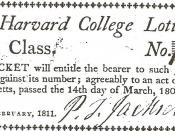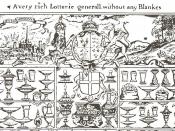In Shirley Jackson's short story "The Lottery" she represents an average society with seemingly common order and widely developed traditions which everybody is forced or even glad to follow whatever they are. First we see how everybody has traditionally defined roles within the community: men, women and even children know well how they are expected to behave. Men are the dominating part; they have the right to make decisions for their families. Women have a subordinate position: they are supposed to "walk shortly after their menfolk" (328) and to work only at home. Children are involved in the social life and supposed to learn its traditions from an early age. A surprising thing is that nobody finds anything bad in this or tries to rebel. Afterwards, we see that full obedience to the social order leads to the support of the main tradition - the annual ritual of choosing a "winner" in the lottery- a victim to be stoned to death.
And this shows what is common about such different roles of the people: whatever they do, they play just one role - a blind obedience to traditional social foundations. People, like the ones described in "The Lottery", are often so conservative and convinced with following the rules that they can't distinguish between right and wrong, and admit pointless or even insane things.
What unites the people in the village of "The Lottery" is that they all not just submit to established order, but also are afraid to violate it without a clear understanding of why they should do so, even when it concerns so trivial a thing like the small box used as part of the rite. Jackson emphasizes this by saying "No one liked to upset even as much tradition as...


